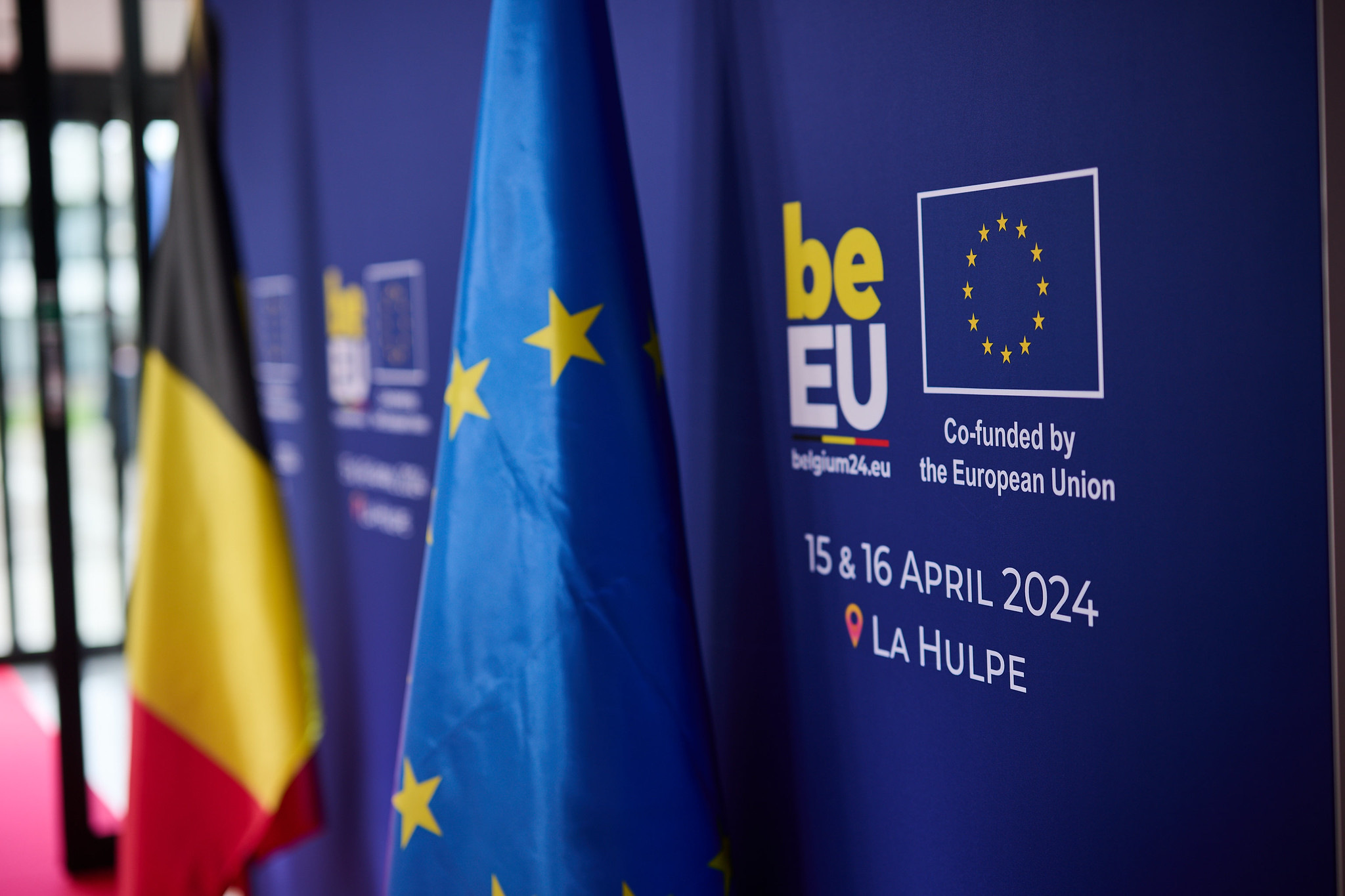On 14 and 15 April, COFACE Families Europe participated in the Social Summit on the Future of Social Europe that took place in the small Belgian village of La Hulpe, by the beautiful Forêt des Soignes. The purpose of the high-level conference was to sign an inter-institutional declaration, with the ultimate goal of shaping the future social agenda of the European Union for period of 2024-2029. The declaration aimed to reaffirm the European Pillar of Social Rights as the guiding framework for social policies. This formal reconfirmation of the Pillar holds significant strategic importance in preparation for the upcoming negotiations in 2024-2025 to update its action plan, which serves as the mechanism through which the Pillar’s 20 general principles are turned into tangible legislative and policy measures. COFACE welcomes the focus of the La Hulpe Declaration on strengthening supports for families such as work-life balance measures, access to care services (Early childhood education and care, and Long-term care) and actions to further gender equality.
The La Hulpe Summit, strongly supported by the Belgian Council Presidency, and specifically by Frank Vandenbroucke, Deputy Prime Minister and Minister of Social Affairs and Health, spanned two days. Notable speakers at the summit included Presidents Ursula Von der Leyen and Roberta Metsola, Belgian Prime Minister Alexander De Croo, Prof. Mario Draghi and Enrico Letta, as well as the chair of the European Parliament’s Committee on Employment and Social Affairs Dragos Pislaru. The conference also welcomed contributions from the Social Platform secretary general Heather Roy. The agenda featured 6 breakout sessions, each delving into one of key themes of the summit: access to the labour market, access to social protection, fair working conditions, socio-economic governance towards the Porto targets for 2030, equal rights to upskilling and reskilling amid multiple labour market transitions, and investing in children through early childhood education and care services for higher socio-economic returns. The full programme can be found here.
COFACE Families Europe was invited to attend the conference as member of the Social Platform delegation and a select number of representatives from other European civil society organisations. We participated in the breakout session on Early Childhood Education and Care, which addressed the theme of reframing social spending on high-quality services for the early years as a social investment with substantial returns. This investment not only allows for increased labour participation by “relieving” active parents from the burden of childcare, but also contributes to the cognitive development of young children. The session underscored the need, in the context of the upcoming social agenda, to promote the idea that social spending on early childhood education not only promotes a fairer society – in terms of gender and socio-economic equality – but also constitutes a sound fiscal investment, leading to productivity and growth. Growing the sector thus it is not only a matter of justice, but also a fiscally responsible decision.
The other key takeaway from the session, in addition to emphasising the significance of applying a social investment perspective to early childhood education and care, was the imperative to support and empower local authorities in their efforts to establish a comprehensive framework of services for children and families. Three critical operational points were underscored in relation to this goal. Firstly, it is crucial to assist Member States in developing and implementing appropriate quality guidelines that encompass a holistic view of quality in early childhood services – rather than being confined to a few structural categories, such as workforce entry qualifications. Secondly, capacity-building programmes for local authorities are essential not only to enhance their planning capabilities, but also to enable the effective development and implementation of models and protocols for collaboration between childcare services and other relevant local services. The third key objective is to improve national data collection systems for these services, which are typically provided and integrated by local levels of government and thus often go unmonitored by national statistical offices. It is imperative to strengthen the sub-national data collection systems in order to address this issue.
In conclusion, The La Hulpe Summit on the Future of Social Europe has served as an important reaffirmation of the Pillar of Social Rights as the cornerstone of EU social policies. COFACE Families Europe is pleased to note that the conference proceedings emphasised the crucial role of early childhood services as a fundamental investment for social and economic advancement. However, COFACE also advocates for access to long-term care services to support families with a variety of support needs, in line with the European Care Strategy , an important action taken in the framework of the European Pillar of Social Rights Action Plan. In seeing the absence of this topic from the La Hulpe programme, COFACE adopted a joint statement with 16 Civil society organisations calling for a European Long-Term Care Platform to further support the development of European actions to boost this important sector.
As we look towards the upcoming European social agenda, it is imperative to prioritise the provision of high-quality care services to all families, as well as to provide support to local authorities in effectively implementing these measures.





